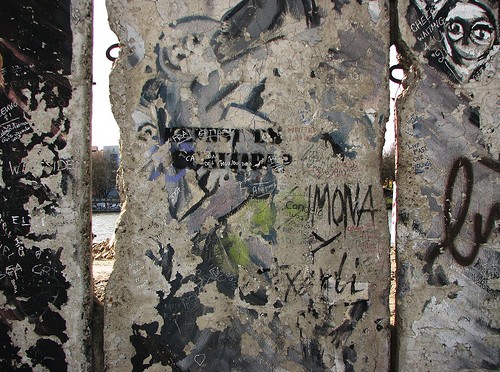Walls keep us safe. They protect us from the cold, from danger, from the prying eyes of other people. They put a safe barrier between us and those who would rob, steal and harm us. Whether made of stone, brick, or wood (or virtual walls of electrons like a computer firewall), walls are intended to give us peace of mind from the worries of everyday life.
The building of our own personal walls begins when we are very young. Roger Waters depicted the building of this type of wall in Pink Floyd’s 1979 double album and its subsequent film and stage adaptations. The “hero” of The Wall is indoctrinated at an early age to conform, to stop asking “stupid” questions, to stop questioning authority. He builds the wall around himself, assisted by parents, teachers, his wife, and others whose intentions are both benign and self-serving.
What does a three year old ask endlessly? “Why?”
What does a three year old ask endlessly? “Why?” Everything is unknown and needs to be explained. “Why?” If you were never told to stop asking “why,” consider yourself fortunate. Most of us were, although those who told you stop asking “why” probably weren’t malicious, just tired of being asked the same question over and over. Or perhaps the questions became uncomfortable or unacceptable. “Don’t ask why, it just is.”
As an actor, the most important question I can ask about my character and his actions is “why?” In building my wall, though, several of the blocks represented the barrier between what I wanted to know and what I was allowed to ask about. It wasn’t until I allowed myself to ask “why?” about anything again – just as I had as a child – that I started to become a decent actor.
And as an unintended circumstance, I became a much more confident and peaceful person the rest of the time. I allow myself to ask “why” about everything, and while I don’t have answers to all of the questions (yet), I am free to inquire and think about whatever interests me, without fear of being told to stop asking the questions.
There are risks. My wall isn’t as rigid (though it does still exist), so I’m not as protected as I used to be. But the benefits, both professionally and personally, have been worth it.
Tear down your wall.
